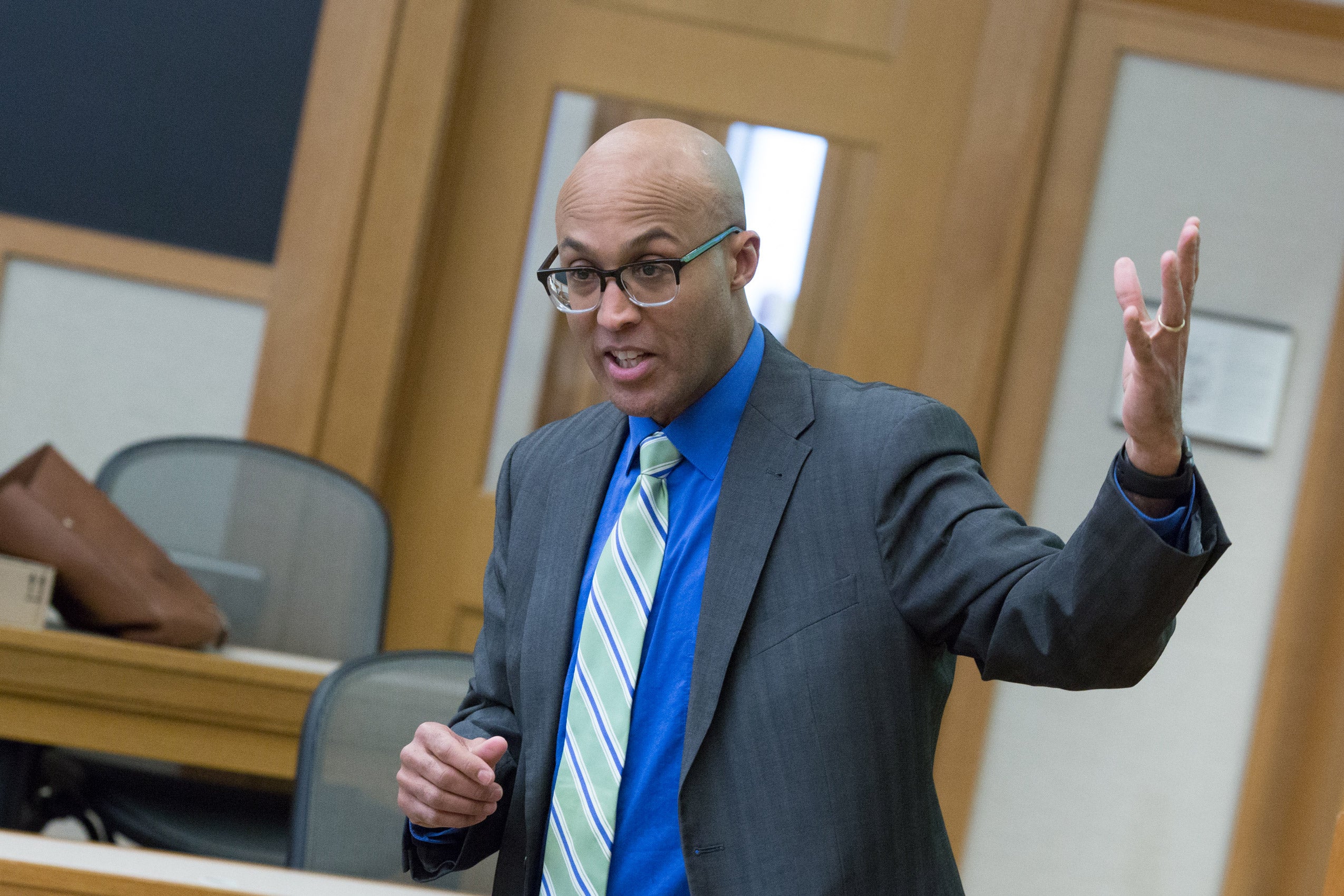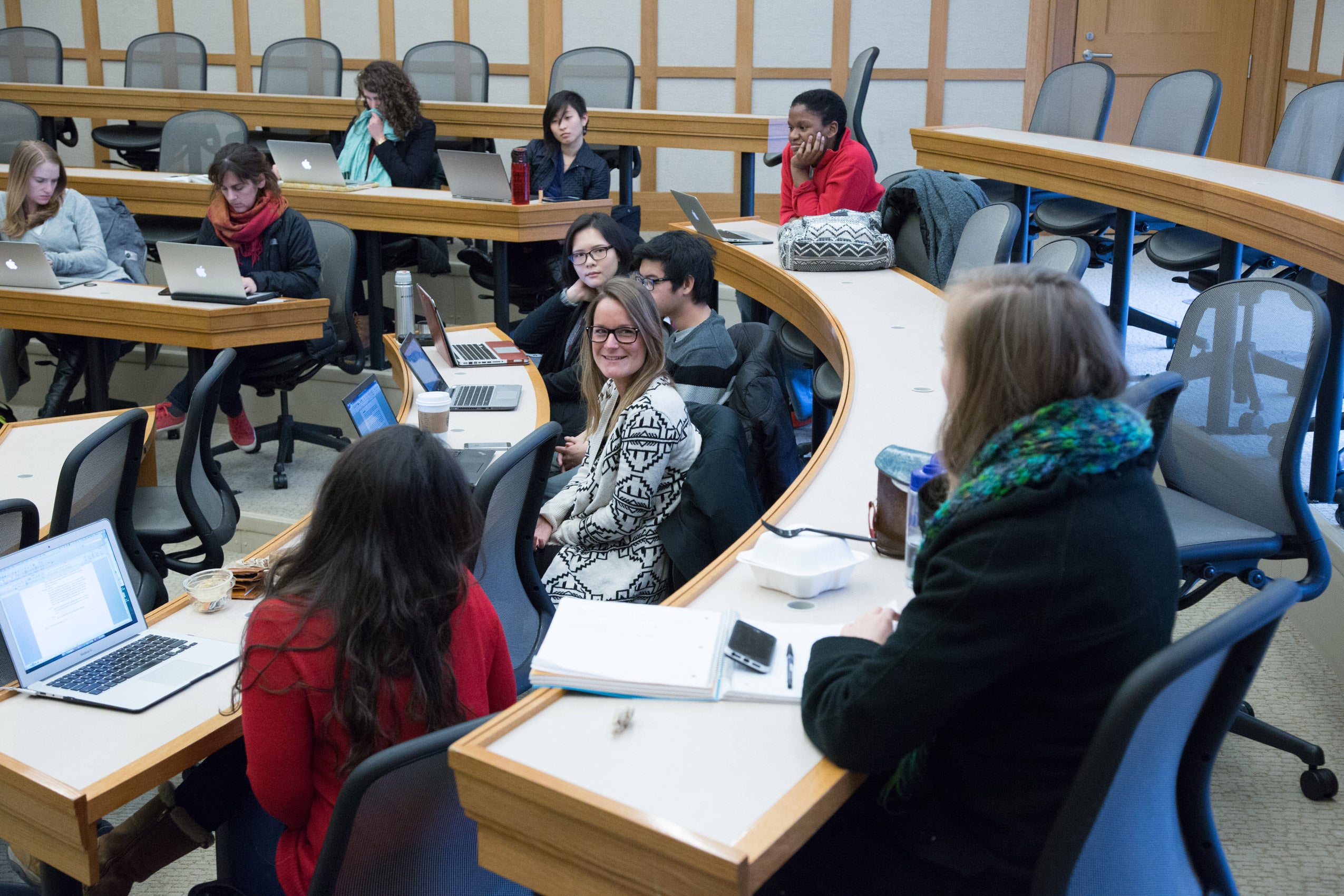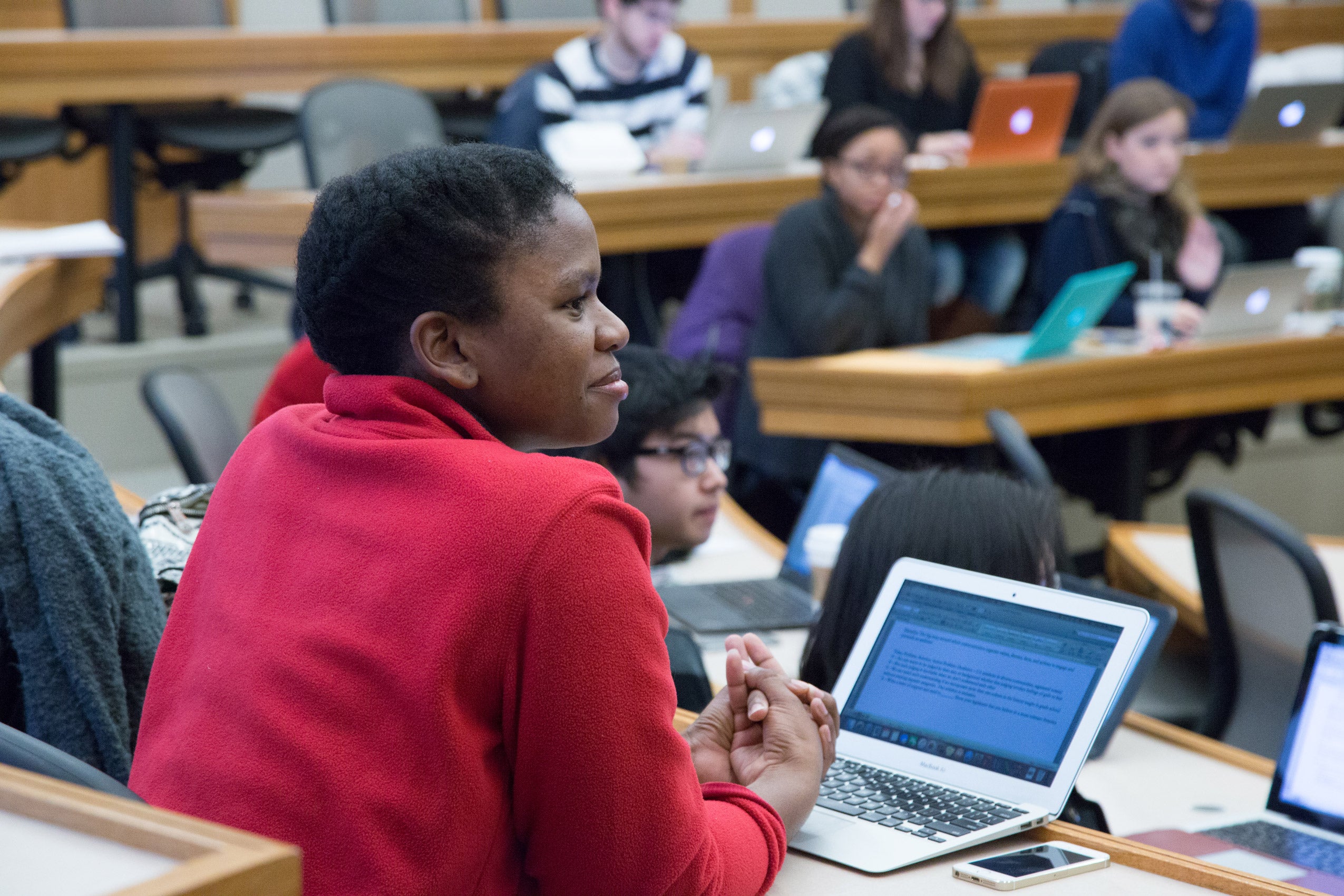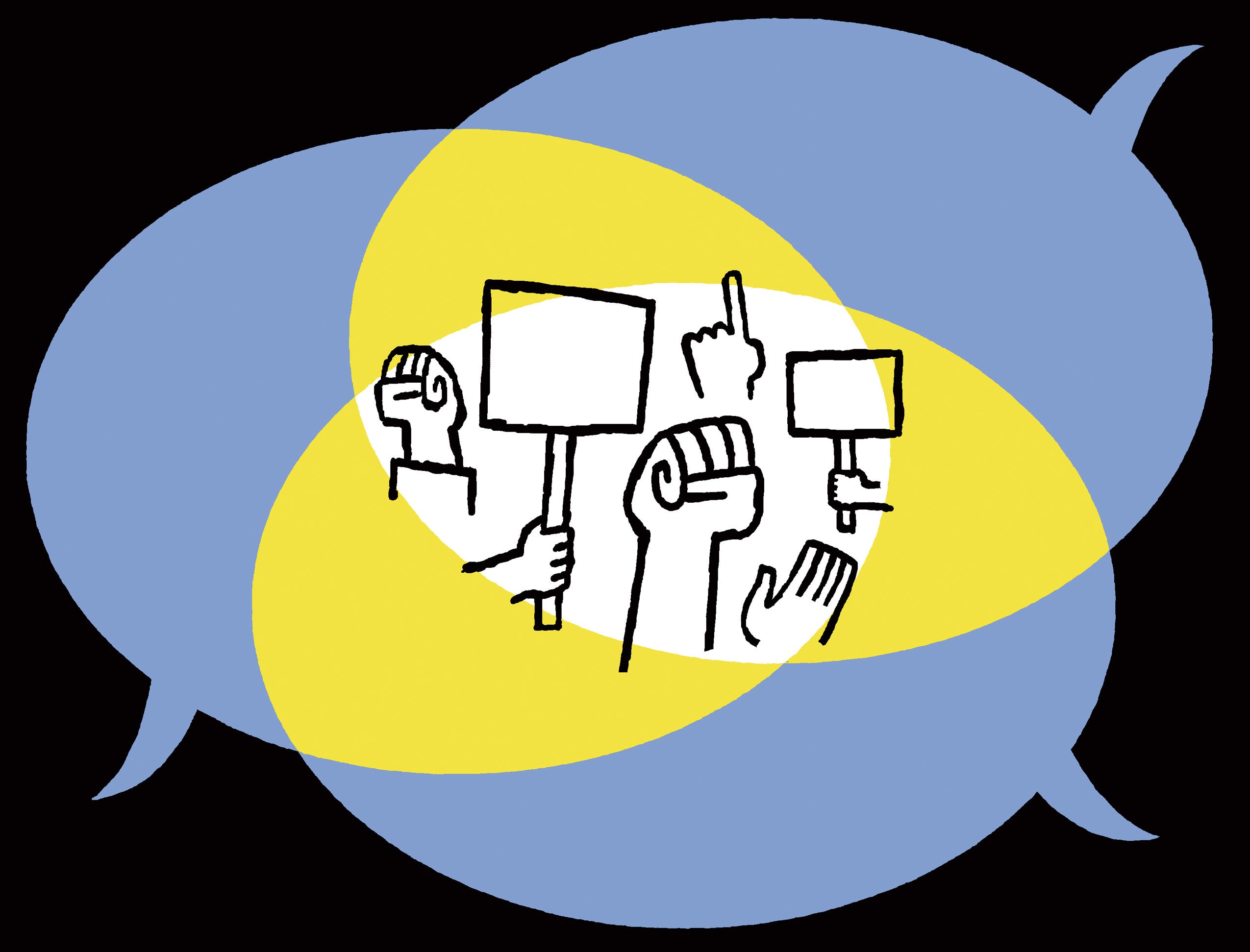Alan Jenkins’ agenda for social change starts with communication
The spark that led to the launch of a new enterprise dedicated to social change and justice ignited in a moment of “bitter complaint,” recalls Alan Jenkins ’89.
The year was 2000. Jenkins was deeply unhappy about the nation’s political affairs in the aftermath of the controversial U.S. Supreme Court decision that settled the presidential election.

Jenkins, who in January was a lecturer at HLS, recalls “bemoaning the state of inequity in the country and [recognizing] that more was needed.” It was a surprisingly pessimistic attitude for the then director of human rights at the Ford Foundation, who managed over $50 million in grant-making annually.
Since graduating from Harvard College in 1985 and then getting his law degree, Jenkins had been on a career fast track. He clerked for U.S. Supreme Court Justice Harry A. Blackmun ’32 and U.S. District Court Judge Robert L. Carter. He was the associate counsel to the NAACP Legal Defense and Educational Fund and served as assistant to the U.S. solicitor general—appearing several times before the Supreme Court.
At the same time, Jenkins felt frustrated about the forces of injustice and inequality he saw around him. Campaigns for reform or economic change were met with distrust by a fearful public. The world was awash in media, but the robust journalism of the past seemed to have disappeared. He thought of the moment when Dr. Martin Luther King Jr. crossed the bridge in Selma, Alabama, and all three networks cut to broadcast the images of police beating back protesters. “We no longer have that mass audience; the closest is the Super Bowl,” he says.
“What I saw, over and over again, was that something was missing, something related to communications, culture, and connection,” he says. “Part of the role of the modern lawyer and advocate is to be an effective communicator.”
Change agents, he decided, needed tools to get out their messages to win hearts and minds. So Jenkins went back to school and received his master’s degree in media studies from New School University in 2005. Ten years ago he co-founded and became the executive director of The Opportunity Agenda, a communications, research, and policy organization dedicated to building the national will to expand opportunity for all.
It’s not as if the world needed yet another nonprofit, he admits, but he envisioned a resource for social justice advocates and grass-roots organizers to obtain the same tools and training of well-funded lobbyists and corporations. “I think I was born and raised to do this,” he says.
Jenkins grew up on Long Island, the son of two teachers who were active in the civil rights movement. His mother’s parents emigrated from the Bahamas; his father’s parents moved from the South to the North. “Both families left home in search of freedom and opportunity,” Jenkins says. “There was no question that I would be working as best I could to make the country better. I just didn’t know how I would do it.”
As a Harvard undergraduate, he considered becoming a civil rights lawyer, a filmmaker or a social psychologist. Law won. At HLS, he impressed Professor Charles Ogletree Jr. ’78, now director of the HLS Charles Hamilton Houston Institute for Race and Justice. “Alan is the type of mentee that makes me proud to teach,” Ogletree recalls.
Although Jenkins went on to a distinguished legal career, he discovered there was still some necessary expertise he lacked. At Harvard, “I learned one method of communications—the language of the law,” he says. “But as a civil rights lawyer, I needed to be able to go on television to promote my clients’ interests. I needed to be able to speak to parishioners at a 100-year-old church. I needed to be able to move policymakers. Those were not skills I had learned here.”
Those are skills now promoted by The Opportunity Agenda. To give today’s Harvard students a taste of these techniques, Jenkins returned to campus in January 2016 to teach Communications, Law and Social Change.
The bitterness he felt in 2000 has been swept away. “This is a very exciting time to be in the world of social change,” says Jenkins, a New Jersey resident and father of two teenagers. “It poses great opportunities and also great challenges to those of us with law degrees to be of service to that change.
“Had you asked me in law school if I would be running an organization that combines communications, culture, law and policy, I would have said, ‘A what?’”
***
Taking Hold of the Narrative
Students look at communications skills for lawyers outside the courtroom
Students in the Harvard Law School class Communications, Law and Social Change have just watched a Ken Burns documentary on the 1990 trial of five black and Latino juveniles convicted in New York of the beating and rape of a female jogger in Central Park. Lecturer on Law Alan Jenkins ’89 wants to know how they would retry the case—not at trial but in the court of public perception.

“Is there a different way this story could have been told?” he asks the class. The New York media depicted the defendants as a kind of wolf pack bent on “wilding.” “Once a social narrative is set,” says Jenkins, “it’s very hard to discard—to get at the facts.” Could the defense have created a different narrative for their clients? The five were eventually exonerated after spending between six and 13 years in prison.
“Lawyers could have shown the defendants as children. They played video games and basketball. They were babies,” says Elisabeth Ryan, a student from the Harvard T.H. Chan School of Public Health enrolled in the law school class. Other students say attorneys might have emphasized how police coerced confessions.
But, Jenkins explains, lawyers often have to walk a fine line between generating helpful PR for their clients and staying in the confines of what they are permitted to do under rules of professional conduct. Defense attorneys, for example, are required to keep client information confidential, but sometimes such information could show their client in a more positive light.

“Just because you’re a lawyer doesn’t mean the First Amendment doesn’t apply to you. In fact, outside the court you have greater First Amendment rights than inside,” Jenkins says.
Carolina Santana Sabbagh LL.M. ’16 notes the prosecution seemed bent on getting a conviction, no matter what the facts were. “It was as if there were no uncertainty of the culpability of the accused,” she says.
Yet, as Jenkins says, prosecutors are “officers of the court.” They should be seeking the truth, not necessarily convictions.
He challenges the class: Can they as defense lawyers respond to prosecution statements made outside the courtroom that put clients in a bad light? Several students jump in to explain the “right of reply” exception.
Breaking into groups, the students delve deep into communications strategy for the so-called Central Park Five. “We have to show that this was a rush to judgment,” says Kyle Strickland ’16. But it’s not just a matter of condemning police: “If you criticize law enforcement too much, [people] will not listen to what you say,” says Rebecca Copcutt LL.M. ’16.
As the students confer, Jenkins muses, “This is a course I wish someone had taught me while I was in law school rather than my having to learn it gradually over 20 years of practice.”
